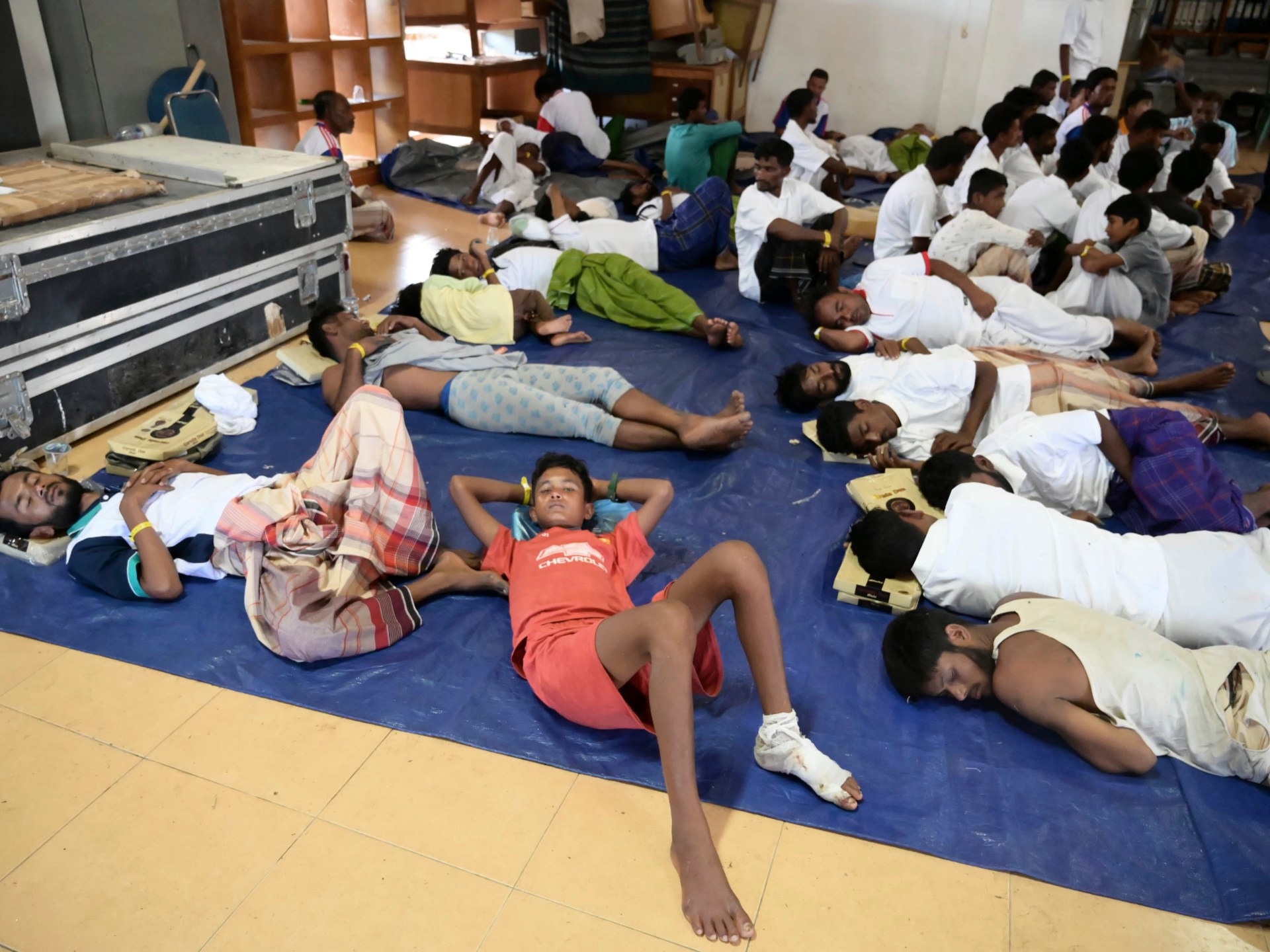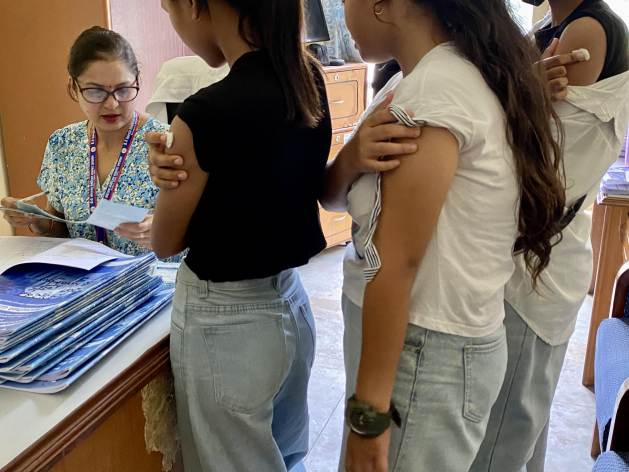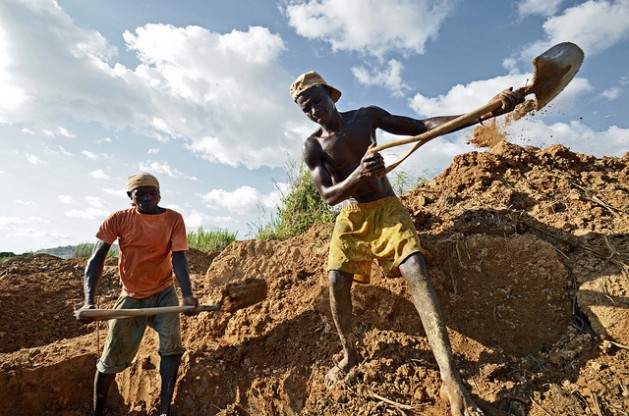Bodies of three Rohingya found as Indonesia ends rescue for capsized boat | Rohingya News
Local authorities in Aceh province have received several reports about dead bodies floating in nearby waters since Saturday.
The bodies of three Rohingya refugees have been found in open waters off Indonesia’s Aceh province, says the provincial search-and-rescue agency as authorities end a search for survivors from a capsized boat.
The wooden boat with an estimated 151 people on board capsized some 19km (12 miles) from the beach of Kuala Bubon on the west coast of Aceh on Wednesday morning. Fishers and a search-and-rescue team rescued 75 people from the boat by Thursday – 44 men, 22 women and nine children – after they huddled on its overturned hull throughout the night.
However, more than 70 Rohingya were “presumed dead or missing”, which if confirmed would be the biggest loss of life in such an incident so far this year, the United Nations’ refugee agency (UNHCR) said on Friday.
“After we searched the area, the team found three bodies, two adult women and one boy. They are allegedly Rohingya refugees who were the passengers of the capsized and sunken boat,” Al Hussain, chief of Banda Aceh Search and Rescue Agency, said in a statement on Sunday.
Fishers first spotted the three bodies and reported them to local authorities on Saturday. The bodies were taken to the hospital in Calang city in Aceh Jaya district before local authorities buried them.
Officials of the UN High Commissioner for Refugees (UNHCR) said survivors had confirmed the deceased refugees were on the capsized boat.
“We have verified … we [took] one of the refugees to identify and verify that they were together on the boat,” Faisal Rahman of UNHCR in Aceh said on Saturday.
Local authorities in Aceh have received several reports about dead bodies floating in nearby waters since Saturday. Most of those presumed to have died – mainly women and children – were likely unable to swim, and were carried out to sea by the currents.
The predominately Muslim Rohingya minority in Myanmar faces widespread discrimination, and most are denied citizenship. About one million of them fled to Bangladesh – including about 740,000 in 2017 – as refugees to escape a brutal campaign by Myanmar’s security forces, who were accused of committing mass rapes and killings and burning thousands of homes.
In recent years, many Rohingya have been fleeing overcrowded camps in Bangladesh to embark on dangerous sea journeys on rickety boats to reach Indonesia, Thailand and Malaysia in search of a better future. Many have drowned on the way. The 2023 toll of at least 569 Rohingya dead or missing while trying to flee Myanmar or Bangladesh was the highest since 2014, the UNHCR said in January.
Indonesia, like Thailand and Malaysia, is not a signatory to the UN’s 1951 Refugee Convention, and so is not obligated to accept them. However, it generally provides temporary shelter to refugees in distress. More than 2,300 Rohingya arrived in Indonesia last year, UNHCR data showed, surpassing the number of arrivals in the previous four years combined.
However, resistance to the Rohingya has grown in Indonesia, where some allege, without evidence, that the refugees receive more resources from aid agencies than residents and that they engage in criminal activity. Locals have protested for authorities to turn back Rohingya arriving on boats.
Check out our Latest News and Follow us at Facebook
Original Source







